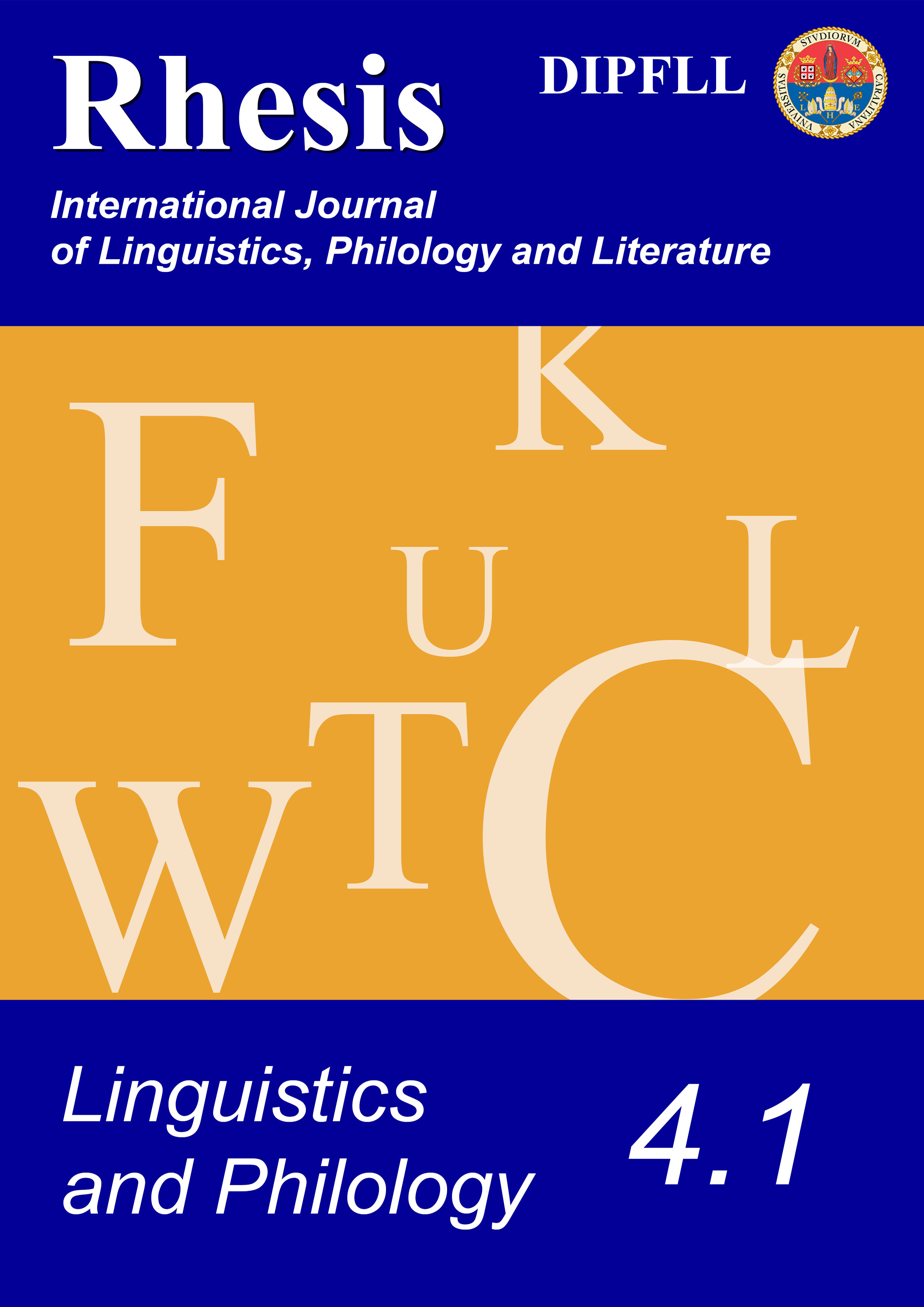I’m loving you – and knowing it too: Aspect and so-called stative verbs
Abstract
English verbs are generally classified as either stative or dynamic, where one of the main differences is said to be that stative verbs are inimical to the progressive aspect. Cases where such verbs do occur in the progressive are often explained away as involving a change in verb meaning. Another common approach to the progressive is to maintain that the progressive form as such can convey a range of meanings. Most commonly, a distinction is made between progressives with aspectual meaning and progressives with subjective meaning. In the present paper we take a functional-semantic approach and argue that all socalled stative verbs can potentially be used in the progressive. We further argue that the grammatical morpheme –ing has a synchronically invariant core meaning which can be pressed into service via the progressive construction to evoke a variety of messages – aspectual and expressive – depending on the context and the communicative needs of the speaker. The data used in the present paper are 132 tokens of BE loving and 66 tokens of BE knowing from the Corpus of Historical American English. Our results suggest that one reason verbs such as these are said to be inimical to the progressive is because this usage is primarily a feature of spoken language, and most grammatical descriptions up until recently have been based on written English.
Downloads
References
DAVIES, Mark. (2010-) The Corpus of Historical American English: 400 million words, 1810-2009.
GRANATH, Solveig, WHERRITY, Michael. 2008. Just what everybody is loving and wanting: A unified approach to so-called stative verbs in the progressive. Paper presented at ISLE 1, Freiburg, Germany, 8-11 October 2008.
GUT, Ulrike, FUCHS, Robert. 2013. “Progressive aspect in Nigerian English” (to appear in «Journal of English Linguistics», August/September 2013).
HILBERT, Michaela, KRUG, Manfred. 2012. “Progressives in Maltese English: A comparison with spoken and written text types of British and American English”. In Marianne HUNDT and Ulrike GUT (eds.), Mapping Unity and Diversity WorldWide,. Amsterdam/Philadelphia: John Benjamins, 103–136.
HUDDLESTON, Rodney, PULLUM, Geoffrey K. 2002. The Cambridge Grammar of the English Language. Cambridge: Cambridge University Press.
HUNDT, Marianne. 2004. “Animacy, agentivity, and the spread of the progressive in Modern English”, in «English Language and Linguistics» 25, 49–87.
KRANICH, Svenja. 2010. The Progressive in Modern English: A corpus-based study of grammaticalization and related changes. Amsterdam – New York: Rodopi.
LANGACKER, Ronald W. 1987. Foundations of Cognitive Grammar. Vol. 1, Theoretical prerequisites. Stanford, CA.: Stanford University Press.
LEECH, Geoffrey, HUNDT, Marianne, MAIR, Christian, SMITH, Nicholas. 2009. Change in
Contemporary English: A grammatical study. Cambridge: Cambridge University Press.
LJUNG, Magnus. 1980. Reflections on the English Progressive. Gothenburg: Acta Universitatis Gothoburgensis.
MAIR, Christian. 2006. Twentieth-century English: History, variation and standardization. Cambridge: Cambridge University Press.
MAIR, Christian, HUNDT, Marianne. 1995. “Why is the progressive becoming more frequent in English? A corpus-based investigation of language change in progress”, in «Zeitschrift für Anglistik und Amerikanistik» 43, 111–122.
MILLER, Jim. 2011. A Critical Introduction to Syntax. London, New York: Continuum.
MINDT, Dieter. 2000. An Empirical Grammar of the English Verb System. Berlin: Cornelsen.
NÚÑEZ-PERTEJO, Paloma 2004. The Progressive in the History of English with Special Reference to the Early Modern English Period: A corpus-based study. München: Lincom.
PAYNE, Thomas E. 2011. Understanding English Grammar: A linguistic introduction. Cambridge: Cambridge University Press.
QUIRK, Randolph, GREENBAUM, Sidney, LEECH, Geoffrey, SVARTVIK, Jan. 1985. A Comprehensive Grammar of the English Language. London: Longman.
SMITTERBERG, Erik. 2005. The Progressive in 19th-century English: A process of integration. Amsterdam/New York: Rodopi.
WHERRITY, Michael. 2001. The Gerund/infinitive Contrast in English Verb Complementation. Doctoral thesis, Graduate School of Education, Rutgers University, New Brunswick, N.J. (UMI Dissertation Express:



